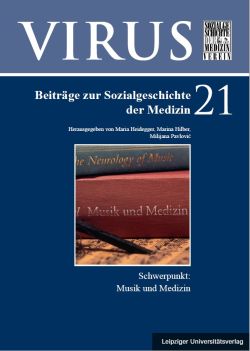
VIRUS Band 21, pp. 177-194, 2023/03/22
Schwerpunkt: Musik und Medizin

Hedi Gigler-Dongas (1923−2017), daughter of the composer Grete von Zieritz and the writer Herbert Gigler, was already looking back on a successful career as a violin soloist when she − according to the ego documents she left behind − increasingly followed her actual vocation from around the 1970s. She found it in the therapeutic, didactic work with violinists who suffered from profession-specific physical complaints, whereby for Gigler-Dongas psychosomatic aspects functioned as superior to physiological ones. Symbolic research with sexual connotations also played a significant role in her analytical approach. Gigler-Dongas’ own painful experience of being an externally determined child prodigy served as a source of inspiration and motivation. Her distinct self-image as a highly qualified specialist both in her bread-andbutter profession as a violinist and for her vocation as a therapist for body and soul, as well as her efforts to actively influence her external perception as such, can be traced in numerous first-person documents, including above all autobiographical narratives, letters and diaries. These always reveal a close interweaving of the public “professional persona” with aspects of private life, even in later years, for instance, by implying medical competence via her role as a doctor’s wife.
Keywords: Berlin, Graz, 20th−21st centuries, violin methodology, professionalism, therapy, autobiography